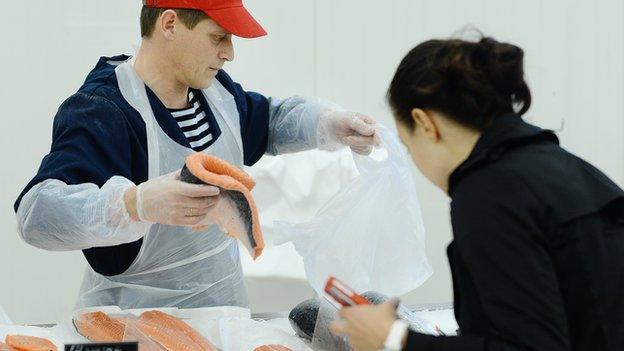EU compensates fruit and veg growers hit by Russian ban
- Published
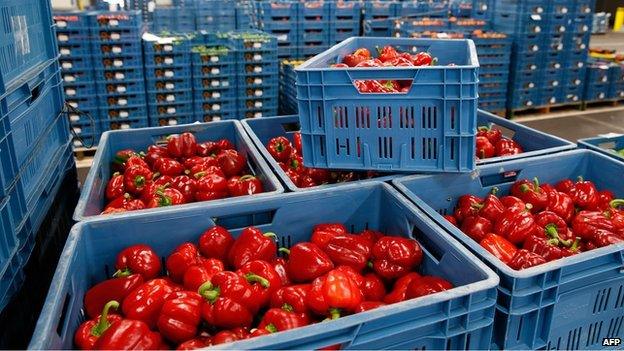
Dutch peppers: Withdrawing some produce from sale is meant to prevent the price crashing
The European Commission has announced emergency EU funding of 125m euros (£100m; $170m) for fruit and vegetable growers hit by Russia's ban on most imported Western food.
The funding is compensation for fresh produce which will not be sold. Instead it will be distributed free to schools, hospitals and other institutions.
Tomatoes, peppers, cucumbers, grapes and pears are included in the scheme.
Russia has banned many food imports, angry at EU-US sanctions over Ukraine.
Germany's Chancellor Angela Merkel insisted on Monday that the EU sanctions must stay in place "in order to show how serious we are" on the Ukraine crisis.
She was speaking in Latvia, an EU member state with a large ethnic Russian minority. Its Baltic neighbour Lithuania is especially hard hit by the Russian import ban.
EU and US sanctions are targeting top Russian officials and key economic sectors, such as energy and finance, as Western leaders accuse the Kremlin of destabilising eastern Ukraine by supporting the pro-Russian separatists there.
The first round of Western sanctions came after Russia annexed Crimea in March.
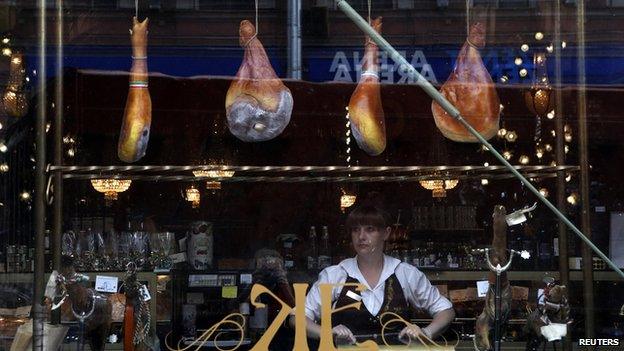
Spanish ham - here on sale in St Petersburg - is a favourite now among Russians
'More competition'
Russia's Prime Minister Dmitry Medvedev said on Monday he did not think the Russian ban would push up food prices, but he added: "I hope these measures won't last very long".
The embargo would encourage competition, giving Russian farmers more market access, he argued. He criticised "a situation where all the apples, for example, come from Poland or some other products - say fish is an example - all from Norway".
In the EU the biggest exporters of fresh fruit and nuts to Russia were its neighbours Poland (339m euros) and Lithuania (309m euros) in 2013. They were also the biggest for fresh vegetables (Lithuania - 340m and Poland - 173m).
Last week the Commission announced plans to pay peach and nectarine growers for 10% of their crop, and the new funding expands that aid to many more producers.
The crops affected by the EU compensation scheme are those in full season now, with no storage option for most of them and no immediate alternative market available, a statement from Agriculture Commissioner Dacian Ciolos said., external
Ruinous emergencies
"All farmers of the concerned products - whether in producer organisations or not - will be eligible to take up these market support measures where they see fit," he said.
The measures will apply until the end of November.
Data includes re-exports of EU food products, eg for Lithuania exporting products originating in the Netherlands or Belgium.
SOURCE: European Commission
The compensation will come from a special 420m-euro fund set up under the current Common Agricultural Policy (CAP), for farmers facing potentially ruinous emergencies.
The food types covered by the new compensation scheme are: tomatoes, carrots, white cabbage, peppers, cauliflowers, cucumbers and gherkins, mushrooms, apples, pears, red berries, table grapes and kiwis.
On 7 August, Russia declared a one-year embargo on meat, fish, dairy products, fruit and vegetables from the EU, the United States, Canada, Australia and Norway in retaliation for Western economic sanctions.
EU fruit exports to Russia last year were worth 1.07bn euros (£855m; $1.4bn) - the biggest agricultural export sector, ahead of dairy produce and meat.
Lithuania, Poland, Finland and Denmark each face losses running into hundreds of millions of euros because of the Russian ban, the Financial Times reports.
- Published11 August 2014
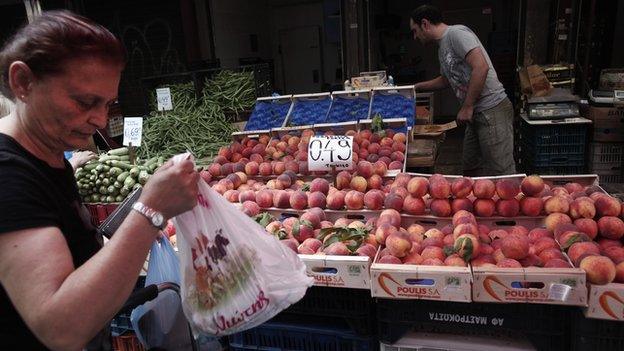
- Published10 August 2014
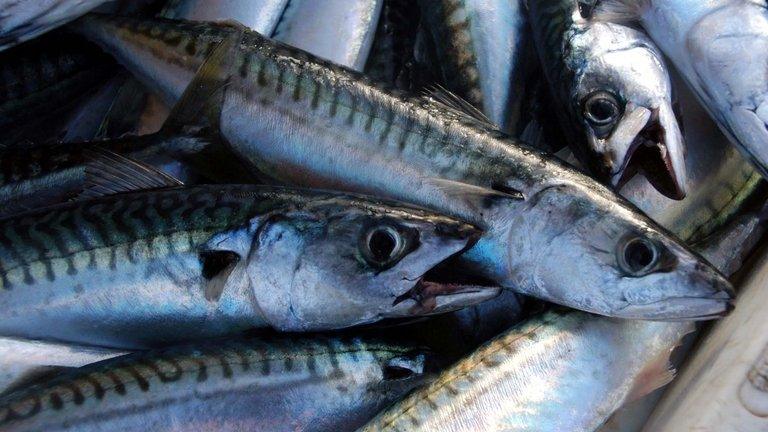
- Published7 August 2014
